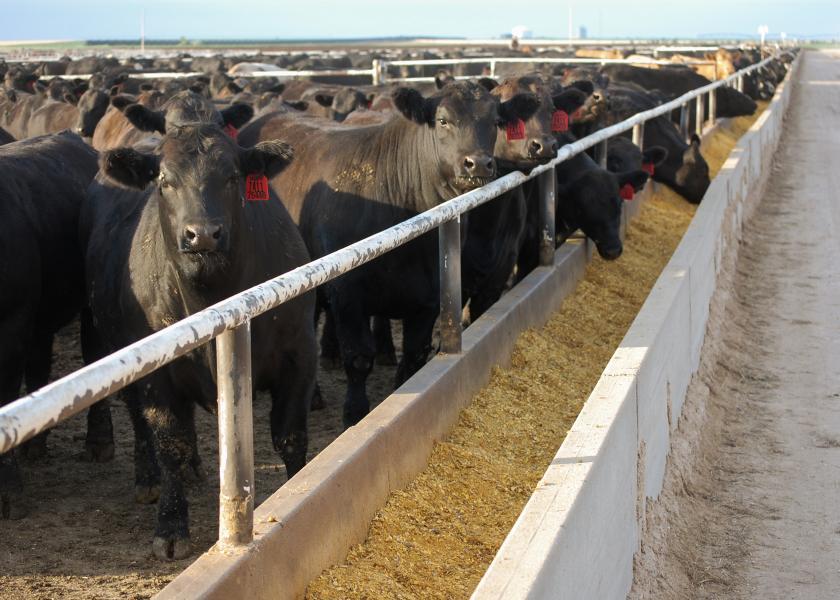Fact Check: Death of Kansas Cattle in June 2022 Caused by Extreme Temperatures, Officials and Industry Say

Contrary to posts online, there is no evidence that billionaire Bill Gates is involved in the death of at least 2,000 cattle in Kansas. State authorities and members of the industry have attributed the deaths to so-called heat stress, caused by extreme heat and humidity.
“Billionaire tech mogul, Bill Gates, is a reasonable candidate for consideration in killing about 3,000 cows in southwest Kansas under very mysterious and unknown circumstances,” reads part of a Facebook post.
Other examples are viewable here and here.
A conservative commentator with 200,000 Twitter followers suggested “Bill Gates has an answer” considering “cattle don’t just drop dead from heat”, and because Gates is “the biggest farmer in America.”
The latter is a claim previously addressed by Reuters ( here ), Gates it not the owner of the majority of U.S. farmland; industry reports from 2021 show he owned about 0.027% of it. He is, however, the largest private farmland owner, according to ‘The Land Report’ ( here here ).
Heat Stress
The Kansas Department of Health and Environment has said it knows of at least 2,000 cattle deaths in the southwest of the state, due to high temperatures and humidity. On June 16, a spokesperson for the department confirmed to Reuters that the figure, which is based on the facilities that had contacted the agency for help disposing of carcasses, was the latest available.
Previously speaking to Reuters, Scarlett Hagins, spokesperson for the Kansas Livestock Association said cattle began suffering heat stress as temperatures and humidity spiked over the June 11-12 weekend in western Kansas and cooling winds disappeared. The animals could not adjust to the sudden change, she added.
The University of Minnesota Extension, the university’s science-focused partnership with government agencies, explains that heat stress happens “when cows generate and absorb more heat than they can easily get rid of by respiration, sweating and air blowing by them”. It can lead to a lower milk production, disease incidence and a higher death rate.
Cattle can start experiencing heat stress around 72 degrees Fahrenheit (22 degrees Celsius) with 50% humidity, according to the University of Minnesota Extension.
Historical weather data from Kansas State University shows that different parts of Kansas registered temperatures of over 100 degrees Fahrenheit throughout June 11, 12 and 13.
In a message posted by the Kansas Livestock Association on Facebook, Hagins said that cattle could not cool down over the nighttime hours because temperatures remained high.
Contacted by Reuters, a spokesperson for the Kansas State University Weather Data Library pointed to data from the Grant Kansas Mesonet weather station as an example. At that location in southwest Kansas, the overnight minimum temperatures had been higher thus far in June 2022 than they were in June 2021 and while some daily highs were much higher in 2021, the lows in 2021 were cooler.
Furthermore, “all these elements fell within several days of each other in 2022 compared to spread out in 2021,” they added.
Posts with the claim arguing heat levels are “normal” for this time of the year, fail to consider the above factor.
In a paper published in the Lancet in March, researchers estimated heat stress in animals, described as “one of the major climate change impacts on domesticated livestock,” could lead to annual losses of multiple billions of dollars for the global cattle production industry by the end of the century.
Reuters has reported on the impact of climate change in livestock and global food production.
Other posts with the claim refer to debunked allegations about the nationwide baby formula shortage and food processing plant fires in 2022, which Reuters previously addressed.
Verdict
No evidence. There is no evidence that Bill Gates is involved in the death of at least 2,000 cattle in Kansas in June 2022. Officials and industry members have said the fatalities were caused by heat stress, provoked by extreme heat and humidity.
This article was produced by the Reuters Fact Check team. Read more about our fact-checking work here.







